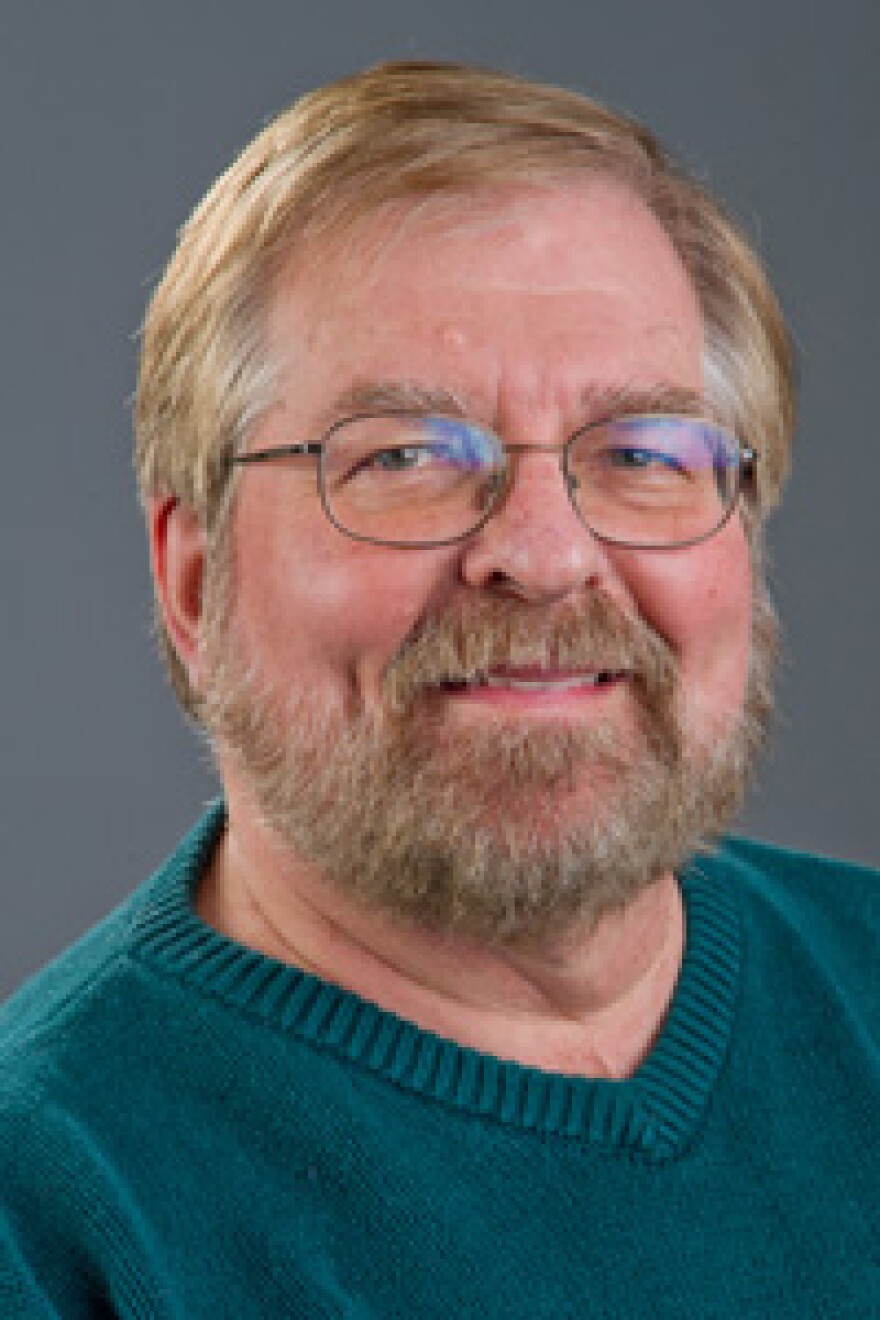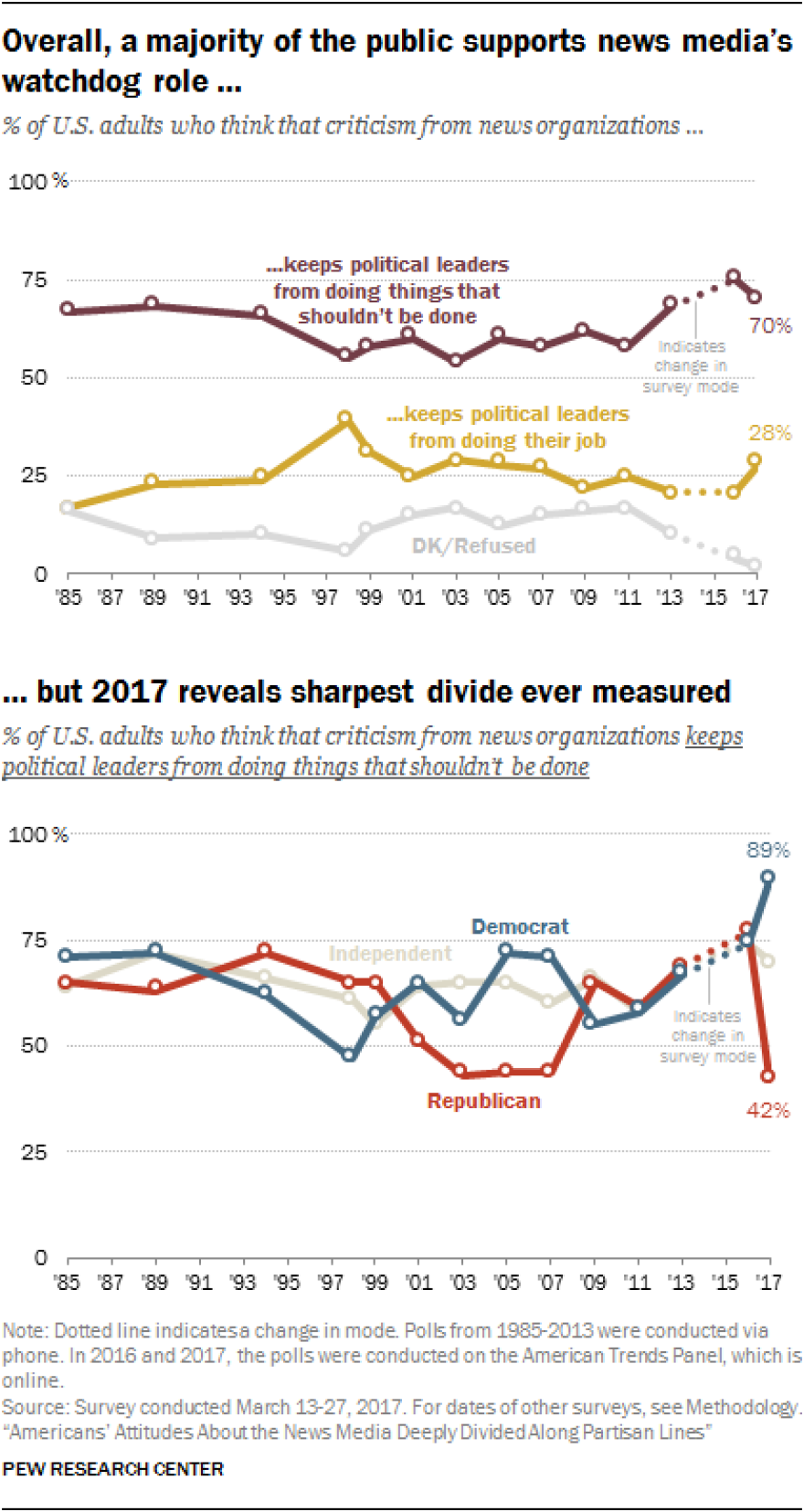Should journalists report everything the president or other public officials say, even if it's rude, crude or proves to be untrue?
Should mainstream media outlets have reported verbatim fired White House communications director Anthony Scaramucci's expletive-laced tirade against his administration colleagues? How can consumers of news determine which media outlets are legitimate and which are political commentary masquerading as news?
Illinois Wesleyan University journalism Professor James Plath believes American journalism is at a turning point. He says both media outlets and news consumers are to blame for the ethical struggles currently facing journalists.
Speaking on GLT’s Sound Ideas, Plath said a glaring example is the recent media coverage of the Scaramucci incident, which included expletives and a vulgar reference to the male anatomy. The New York Times and many mainstream publications reported Scaramucci’s comments.

“I do think that the New York Times probably made a mistake in publishing that particular four-letter word. We’ve seen (foul) language creep into newspapers, but the F-bomb, I mean, you can’t even see more than one of those in a PG-13 movie, and suddenly we’re getting that in a mainstream newspaper,” Plath said.
Some news organizations, such as National Public Radio, chose not to air the Scaramucci comments verbatim. Plath, who has taught journalism at IWU for more than 30 years and is a past president of the Illinois College Press Association, said mainstream media outlets are increasingly influenced by coverage on non-traditional news sources.
“We are seeing our profession being pushed into a new phase of yellow journalism,” Plath said.
Political coverage, Plath added, has become “personality-driven” rather than issues-driven.
“Whether they are giving the public what the public wants and the public is driving this, or it’s the media that is chasing after personalities, that is a hard one to call,” he added.
Should the media simply ignore comments from public officials that are rude, crude or prove to false?
“If they continue to cover it, you are going to fuel the public’s fascination with this,” Plath said.
During the campaign, a large number of Americans seemed to find refreshing candidate Donald Trump’s willingness to buck the “politically correct,” Plath pointed out.
“What began as this kind of speak-your-mind thing has now gotten into speaking way more than what anyone needs to hear or wants to hear. What you are going to end up with is a break point, where people are going to say, as with Scaramucci, enough!” he said.
Plath said a critical question is whether the media will continue to “gorge” on the president’s and other public officials’ most outrageous comments and actions.
“Or is it the media’s responsibility to cut it off long before that saturation point? I’m inclined to think the latter,” he said.

Plath said he believes news organizations should not report information they determine to be untrue, even if it comes from the mouth of the president.
He said most organizations debunk statements or assessments from public officials that prove patently untrue, and make ample use of fact-checkers. But Plath argues the untruths have no place in the news in the first place.
He blames some of that on the public’s hunger for immediate news, and shock-value news, fueled by the presence of the Internet and the rise of social media.
“How often have you seen a click-bait headline on a story where the headline that is provocative and gets you to click on the story because it sounds like it’s really racy, it’s shocking news, and you get to it and realize it’s taken out of context or it’s not as severe as that,” Plath asked.
An historic dilemma for journalists, Plath added, is the urge to get the scoop.
“Do we move in haste and get the story part-right or part-wrong, or do we wait and get it all? I think journalists have always wrestled with that.”
What’s different now, he adds, is the plethora of information that is readily available on so many platforms.
“People don’t know how to distinguish between what is right and what is flat-out wrong,” he said.
How can the public distinguish between what is legitimate news and what is political commentary masquerading as news, and what is simply made up?
Plath recommends sticking with mainstream outlets such as The New York Times, Washington Post, Christian Science Monitor, USA Today, Los Angeles Times, CNN and NPR. Such organizations, he said, are bound by the code of ethics set the Society of Professional Journalists.
That is not to say news consumers should steer clear of all other news outlets, or of news organizations with a specific political bent. But he says, the public should look at a variety of news sources, not just those that fit their political viewpoint.
You can also listen to GLT's full interview with Plath:
WGLT depends on financial support from users to bring you stories and interviews like this one. As someone who values experienced, knowledgeable, and award-winning journalists covering meaningful stories in central Illinois, please consider making a contribution.


